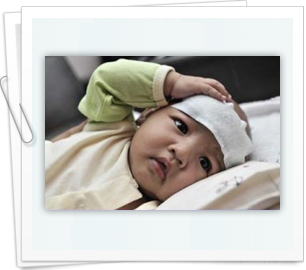Online CPR Certification Blog
Response of Immune system in a baby
Date: July 20th, 2013
 According to the findings of a new research, mothers who experience high anxiety in their pregnancy period can suppress the response of immune system of their babies to vaccinations during their sixth month after birth. The study will be published in an online journal. This stifled nature of immune response showed up only after the young ones failed to receive the vaccine being tested in its full course. However, one of the researchers involved in the study, Tom O’Connor added that the stress experienced didn’t prove to be more powerful compared to an immunization. Even after immunization protection, the impacts of the prenatal anxiety can still be seen in the infants.
According to the findings of a new research, mothers who experience high anxiety in their pregnancy period can suppress the response of immune system of their babies to vaccinations during their sixth month after birth. The study will be published in an online journal. This stifled nature of immune response showed up only after the young ones failed to receive the vaccine being tested in its full course. However, one of the researchers involved in the study, Tom O’Connor added that the stress experienced didn’t prove to be more powerful compared to an immunization. Even after immunization protection, the impacts of the prenatal anxiety can still be seen in the infants.
The immune system and anxiety
Anxious moms are advised not to fear a lot that the vaccinated infants could be more vulnerable to some infectious diseases. The study aimed at showing that the immune system in humans is just the same like in other animals on how it responds to conditions like prenatal stress. Studies done in monkeys and rats showed that a stressful pregnancy results to off-springs having a suppressed immune competence, according to O’Connor. Going by this, there were many reasons to believe that this could still happen in humans. Pregnancy anxiety and stress in moms has largely been associated with neurodevelopment among infants and psychiatric symptoms among children. However, there has been no study has done such tests babies’ immune systems directly with anxious mothers.
To conduct the test, the researchers studied pregnant women aged between 20 and 34 years where they were to answer questionnaires regarding how much they worried between their 8 and 12 pregnancy weeks. Scientists recruited women with least and most anxious that gave a sample size of 210 pregnant women. Upon completion of the questionnaires, the women were also to provide samples of their saliva so that their cortisol, a hormone for stress could be tested. Upon birth, the women agreed their kids to be tested on how their immune system responded to Hepatitis B vaccine that was provided in 3 doses.
The results showed an altered response
Within two months of the study, there was no link found by the researchers between the pregnancy stress of mothers and the immune system of the baby. This was largely explained to result from the fact that immune system in babies is not yet fully mature and couldn’t respond in such a young age. However, by the sixth month, the babies began to depict some differences. For babies who were yet to receive a third dosage for Hepatitis B Vaccine, babies born by stressed mothers had an immune system which was weaker to the vaccine compared to babies born by the relaxed moms. Immune system among babies was measured through drawing of blood where antibodies levels in the babies were taken. Health factors were taken into account by the researchers like pregnancy complications, demographic factors, mode of delivery and maternal obesity.